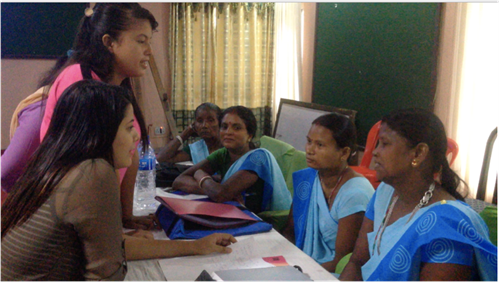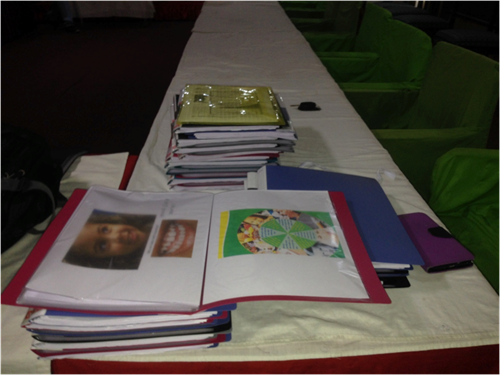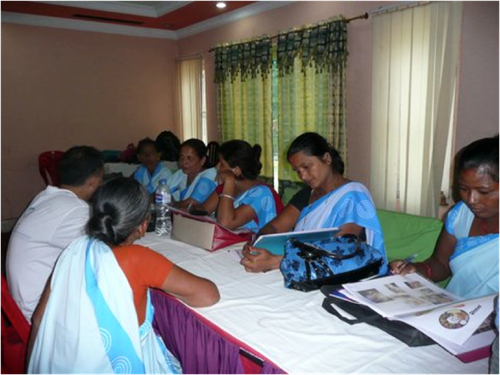Nepal - Training Female Community Health Volunteers in Oral Health Education
Nepal - Training Female Community Health Volunteers in Oral Health Education
By Stjernswärd J, and Irwe L.
Introduction
People in Nepal live in inaccessible areas and access to routine health and oral health care is a challenge. Dental caries of the deciduous teeth went untreated among young children.
Dentists without Boarders, Sweden (http://www.tandlakareutangranser.se/home/), has commenced a training programme for the Female Community Health Volunteer (FCHV) in Eastern Nepal (2015) to introduce and educate oral hygiene practices and healthy diet that could immensely help the village communities of Nepal.
Background
The FCHV programme commenced in Nepal in 1988 and by 1995 the programme was established in all 75 districts in Nepal. There are now 48,549 FCHVs currently assisting with primary health care activities and acting as a bridge between government health services and the community. The FCHV are local community women from various ethnic groups; their median age is 38 years, and 42 percent have never attended a school (1).They serve as frontline local health resource persons who provide community-based health education and services in rural areas, with a special focus on maternal and child health and family planning.
In 2013, during a visit to the Manang area in the hill country, Dr Lena Irwe saw several children presenting with Early Childhood Caries that prompted her to start this Programme which hopefully will introduce the mothers in the villages to proper oral health education that is not available for them in these areas.


Project Outline
Dr Dhirendra, Department of Periodontology, Biratnager Dental School, Nepal and Dr Irwe collaborated in the organisation and implementation of this programme. The idea was to train FCHVs in every village to educate mothers and children in oral hygiene and healthy diet intake, preventing dental caries among children and adults..
The training programme took place in Biratnager in June 2015 for two days, funded by the Dentists Without Boarders, Sweden.
- Fifty participants, all FCHV from the Biratnager area took part in this Programme. Twenty five FCHVs per day for two days were trained by four Local dentists including Dr Dhirendra and two dental assistants. Many of the FCHVs were unable to read and hence needed assistance in explaining the reading materials in the Programme.
- Pre-programme and post-programme questioners consisting of 20 questions were given to the participants, to assess the impact of the programme in the beginning and at the end of the day.
- During the course of the day, oral health education and healthy diet were discussed in lecture format and small group discussions. The downside of sugar, sweetened soft drinks and frequency of intake and the advantages of fluoride toothpaste and toothbrushing was emphasised. Different examples of local foods containing sugars that need to be avoided and those that are good for the children were also discussed.
- Small group discussions focused on changes the FHCP could introduce in their villages to improve oral health for the small children in the prevention of Early Childhood Caries.
- Each participant was able to brush their teeth and use a plaque indicator mouthwash to see the plaque remaining in their teeth.
Outcome
Fifty FCHVs were trained in oral health education and healthy diet in 2015.
The FCHVs will then introduce these concepts and actions to mothers and children during their work in the remote villages that they live.


Conclusion
It is planned in 2016, to visit the remote villages from which the FCHVs work and re assess and motivate their challenging work.
Reference
1) Female Community Health Volunteers. Nepal Family Health Program II. Technical Brief . 2012. (www.nfhp.org.np)
